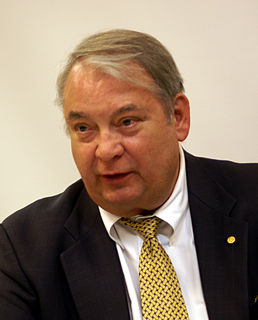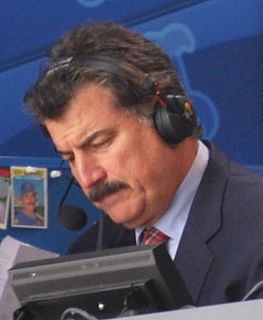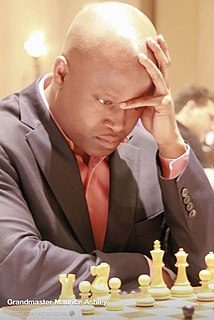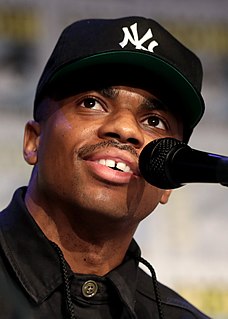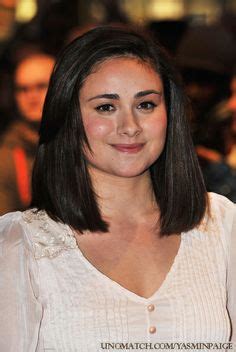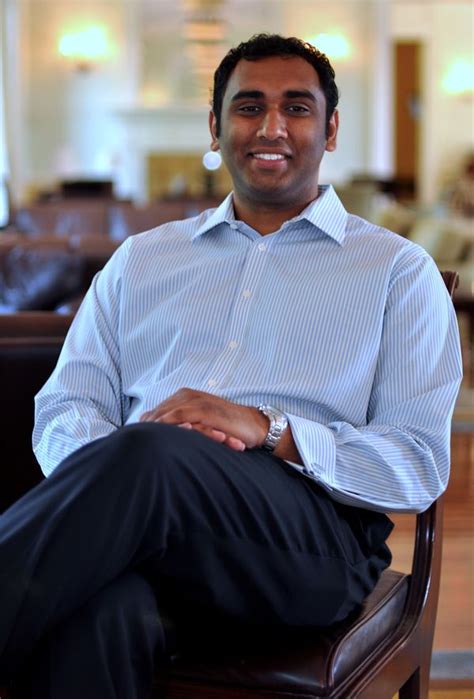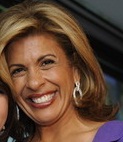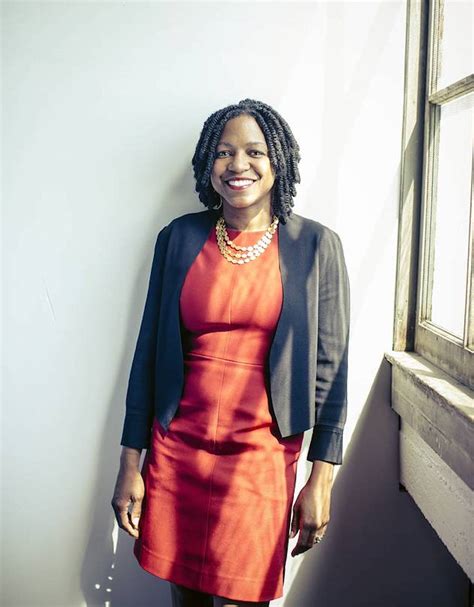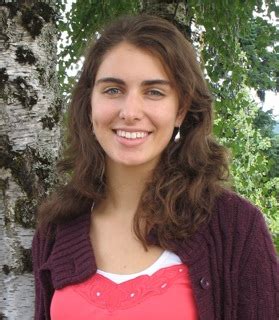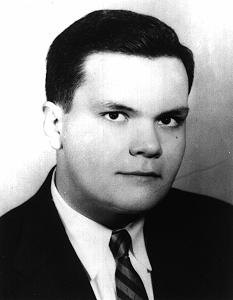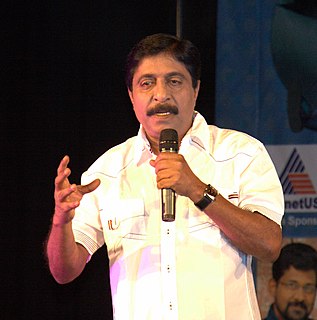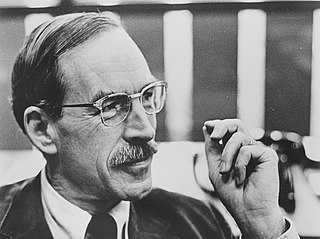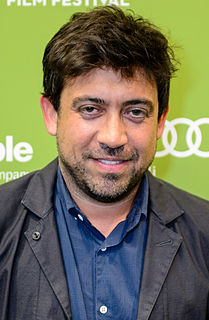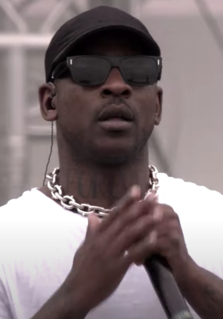Top 1200 School Library Quotes & Sayings - Page 4
Explore popular School Library quotes.
Last updated on November 16, 2024.
I read a lot - surveys of vernacular music. A lot of it is the Harry Smith Anthology of American Folk Music, which I've loved since I was in high school. They had it at the library and I always thought that was interesting, even when I was into punk and stuff. Just the history of storytelling and the amount of melancholy a lot of old music has.
I remember, as a kid, I couldn't wait to get my library card, get my first book. There was a sphinx on the cover, and I figured I was going to read about the Egyptians. But it was this archeology. It was so dry. But I forced myself to read it because it was my first book out of the library. Should have gotten a 'Hardy Boys.'
I cannot imagine the type of sinister fiend who would be against the library. A library essentially says, 'Look, here is some free information that will enrich your life. Read it on your own time. I trust that you will bring it back when you are finished.' It might be the most civilized, forward-thinking institution in America. Perhaps the only one, in fact.
How do you explain to somebody who doesn't understand that you don't build a library to read. A library is a resource. Something you go to, for reference, as and when. But also something you simply look at, because it gives you succour, answers to some idea of who you are or, more to the point, who you would like to be, who you will be once you own every book you need to own.
I know the American Library Association has models for working with the poor. They do have that, and I think that we really need to put our efforts - if we want to think long-range and invest in the community so that we don't have to, you know, invest in prisons - into making a change, because I know that the library can make a change in a life, because it made a change in mine.
At some point, sitting in the school library, during reading period, I looked up from my leopard print hardcover composition notebook where I was scribbling a derivative [John Ronald Reuel ] Tolkien epic full of purple prose in tiny handwriting and thought to myself, "Damn! I am a writer! How did that happen?".
School doesn't teach you much. School teaches you how to follow directions, that's what school is for. And in life, not necessarily following directions helps you get certain places - because you go to the right school you can learn the right things, and you go to the wrong school you can learn the wrong things, so it just all depends. But school doesn't really teach you how to interact with people properly, you learn that outside of school.
I was a completely normal kid, the school nerd. In Year 8 and 9 I got picked on. I was a freak- no one understood me. I was the kid who wanted to be abducted by ET. Then all the losers left in Year 10. But I was quite good at school, and very artistic. In Year 11 it turned around. I became one of the coolest kids in school. I was in school musicals- the kid who could sing. It was bizzare. I loved school. It's an amazing little world. The rules inside the school are different from the outside world.
I was fired from my first job in New York. I was just out of school, doing the Welsh play, 'The Corn Is Green,' at Equity Library Theater. I was studying with Uta Hagen, and I was really working well, but they got nervous. They wanted results right away. We had a run-through, and I wasn't there yet, so they fired me.
The part of my education that has had the deepest influence wasn't any particular essay or even a specific class, it was how I was able to apply everything I learned in the library to certain situations in my life. . . The library takes me away from my everyday life and allows me to see other places and learn to understand other people unlike myself.
I don't know if one's more typecasting than the other, or what I am more like. But I know that the high school I went to was a private school. It was prep school. It was a boarding school. So we didn't have a shop class. We didn't have Saturday detention. We went to school on Saturday. We did have Sunday study, which you very rarely get, because then you have 13 straight days of school. Who wants that?
I dropped out of school, but I didn't drop out of life. I would leave the house each morning and go to the main branch of the Carnegie Library in Oakland where they had all the books in the world... I felt suddenly liberated from the constraints of a pre-arranged curriculum that labored through one book in eight months.
When I think about it, I was working very hard the summer before I applied to graduate school. I was going to the library every day in the summer. I read a play a day for about three months. I was taking audition classes, and I was reciting lines to myself and acting as my own scene partner. But I was having fun.
To this day, my mom's unsinkable spirit is an inspiration to me. For nearly thirty years, she's worked at the Library of Congress. Everyone knows Sameha simply as 'Sami.' Along with 500 miles of shelved books, her closest friendships are cataloged in that library. They are as much the value of work to my mom as is the work itself.
If there's a 13- or 14-year old kid who is yearning for something beyond the social forces in his own world, in his own neighborhood, the library is the only place where he can go to find that. It was exciting and thrilling to me all the time I worked in the library. It's such a force for social good and it can do so much.
I didn't know Penn was an Ivy League school - I didn't know what the Ivy League was. When I got in, they sent me the package, and the tuition was my mother's salary for a year. My mom said, 'We can't afford it.' So I went to the library and found several scholarships and grants and was able to cover 90 percent of my education that way.
We got a copy of the 'New Statesman' at my grammar school in Wigton, Cumbria, in the 1950s. It sat mint fresh every week on the library table, with two or three other bargain-offer magazines. The 'Statesman' came out of the unimaginable Great World. I started to read it then and have pegged along ever since.
There is no frigate like a book and no harbor like a library, where those who love books but can't afford their own complete collections, or those who need a computer, or kids who need a safe place to read after school, or moms with toddlers who want their babies to learn to read, can all come together and share in a great community resource.
From the standpoint of the child, the great waste in the school comes from his inability to utilize the experiences he gets outside the school in any complete and free way within the school itself; while, on the other hand, he is unable to apply in daily life what he is learning at school. That is the isolation of the school — its isolation from life.
There was a library near us in San Francisco. It was the West Portal Public Library. I would ask my father to drive me there at night and pick me up when it closed. I think he was worried about this routine but never let on. Also, I kept this a secret from my friends, as I don't think it would have been considered the 'coolest' habit.
The library smells like old books — a thousand leather doorways into other worlds. I hear silence, like the mind of God. I feel a presence in the empty chair beside me. The librarian watches me suspiciously. But the library is a sacred place, and I sit with the patron saint of readers. Pulsing goddess light moves through me for one moment like a glimpse of eternity instantly forgotten. She is gone. I smell mold, I hear the clock ticking, I see an empty chair. Ask me now and I'll say this is just a place where you can't play music or eat. She's gone. The library sucks.
Between notes, he had contemplated means of destroying Myrna Minkoff but had reached no satisfactory conclusion. His most promising scheme had involved getting a book on munitions from the library, constructing a bomb, and mailing it in plain paper to Myrna. Then he remembered that his library card had been revoked.
When I was in high school... I loved the outdoors, and I was introduced to wilderness camping. I was in a little prep school - a boarding school in southern California, in Ojai - and when I was in this school, they had a camping program, and there would be regular trips: hikes into the mountains, the Sierras, the Sespe River Valley, and different places.
The Library is an open sanctuary. It is devoted to individual intellectual inquiry and contemplation. Its function is to provide free access to ideas and information. It is a haven of privacy, a source of both cultural and intellectual sustenance for the individual reader. Since it is thus committed to free and open inquiry on a personal basis, the Library must remain open, with access to it always guaranteed.
In a library, you can find small miracles and truth, and you might find something that will make you laugh so hard that you will get shushed, in the friendliest way. I have found sanctuary in libraries my whole life, and there is sanctuary there now, from the war, from the storms of our families and our own minds. Libraries are like mountains or meadows or creeks: sacred space. So this afternoon, I'll walk to the library.
When I was nine, I found a copy of 'Doctor Who: the Making of a Television Series' in the school library. It had a picture of Peter Davison on the front, and it was a formative book for me. It explained all the different departments like the script, cameras, and sets and explained how a television show is put together.
Congratulations on the new library, because it isn't just a library. It is a space ship that will take you to the farthest reaches of the Universe, a time machine that will take you to the far past and the far future, a teacher that knows more than any human being, a friend that will amuse you and console you-and most of all, a gateway, to a better and happier and more useful life.
In seventh grade, with some vague sense that I wanted to be a writer, I crouched in the junior high school library stacks to see where my novels would eventually be filed. It was right after someone named Kurt Vonnegut, Jr. So I grabbed a Vonnegut book, 'Breakfast of Champions' and immediately fell in love.
One of the things we learned from that panel is the way poor communities use a library is very different from wealthy communities. But the way the library books are measured are by how many books are taken out. And people in poor communities sometimes won't take the book out because they're afraid to. They're afraid of losing it and not being able to replace it.
Norwich is a fine city. None finer. If there is another city in the United Kingdom with a school of painters named after it, a matchless modern art gallery, a university with a reputation for literary excellence which can boast Booker Prize-winning alumni, one of the grandest Romanesque cathedrals in the world, and an extraordinary new state-of-the-art library then I have yet to hear of it.
I loved doing problems in school. I'd take them home and make up new ones of my own. But the best problem I ever found, I found in my local public library. I was just browsing through the section of math books and I found this one book, which was all about one particular problem - Fermat's Last Theorem.
I was a little tomboy, growing up, but we had to go to the library every weekend if we wanted some form of entertainment. And I would gravitate towards the Shirley Temple, Judy Garland section of the library, and I would just pop that in and watch on replay because kids can watch movies over and over again.
Heaven, Kiwi thought, would be the reading room of a great library. But it would be private. Cozy. You wouldn't have to worry about some squeaky-shoed librarian turning the lights off on you or gauging your literacy by reading the names on your book spines, and there wouldn't be a single other patron. The whole place would hum with a library's peace, filtering softly over you like white bars of light.
To accept the story of the Arab destruction of the library of Alexandria, one must explain how it is that so dramatic an event was unmentioned and unnoticed not only in the rich historical literature of medieval Islam, but even in the literatures of the Coptic and other Christian churches, of the Byzantines, of the Jews, or anyone else who might have thought the destruction of a great library worthy of comment. That the story still survives, and is repeated, despite all these objections, is testimony to the enduring power of a myth.
I often wonder what my life would be like without the use of a library. Throughout my education and career, public and private libraries have been not only the key to much of the knowledge I have acquired, but also have given me a direction within my profession. The best thing about the library is that it is available not only to me, but to everyone. It does not discriminate.
All that is good in our history is gathered in libraries. At this moment, Plato is down there at the library waiting for us. So is Aristotle. Spinoza is there and so is Kats. Shelly and Byron adn Sam Johnson are there waiting to tell us their magnificent stories. All you have to do is walk in the library door and the great company open their arms to you. They are so happy to see you that they come out with you into the street and to your home. And they do what hardly any friend will-- they are silent when you wish to think.
